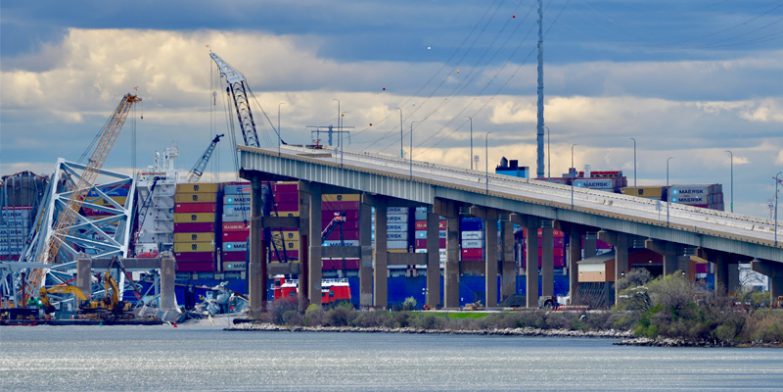
The Dali owners may deny liability and insist that the damage was not due to any fault, neglect, or want of care on their part, but there is a good chance they will be liable and cargo owners may be liable too under general average.
Shippers with cargo aboard the Dali face significant financial risks if, as looks increasingly likely, the shipowner declares “general average” due to the huge losses caused by the accident.
General average refers to a legal principle in maritime law under which all stakeholders in a voyage, including the shipowners, operators and cargo owners, proportionately share the losses caused by a voluntary sacrifice of part of a ship or cargo to save the whole in an emergency.
Incidents declaring general average are not common, and despite being codified since 1890 many cargo owners may not be aware of it and much of the cargo on board may not be insured against it (or at all).
The cost of the Dali crashing into the Francis Scott Key Bridge in Baltimore may amount to US$4 billion in compensation, which would make it the largest recorded single maritime insurance loss in history.
The ship is managed by Synergy Marine Group and owned by Singapore shipowner Grace Ocean Private, and because it is only leased by Maersk, the shipowner bears responsibility.
In practice, most of the bill will ultimately fall within the marine insurance and indemnity field and the largest liability will be the rebuilding of the bridge, with several parties putting the cost as high as US$600 million.
Meanwhile, the shipowner is seeking to be exempt from liability or face reduced compensation responsibility of US$43.67 million.
General Average is one of the most complex procedures in insurance, because insurers will need to calculate the total value of all the goods onboard the Dali to work out the amount owed by each shipper.
With about 4,700 full containers (just under 50% of capacity) aboard the Dali at the time of the collision, establishing the value of each container is complex and using historical data, the process can often take several years.
Adding another level of complexity is the fact that a large proportion of the cargo aboard is likely to be uninsured, as too many shippers either assume it’s already in place, or covered by their freight forwarders or the shipping line.
In the event of loss or damage during transit your goods are not insured unless specifically advised in writing and will, at best, only be subject to the carriers’ limited liability, which is why we always recommend our customers obtain relevant cargo insurance cover.
The Global Forwarding ‘All Risks’ policy is the most simple, cost-effective and comprehensive way to cover the full value of your shipments door-to-door, by any mode, for physical loss and damage, as well as other perils, including general average.
EMAIL Andy Costara to learn more and see how our insurance can protect your supply chain.





